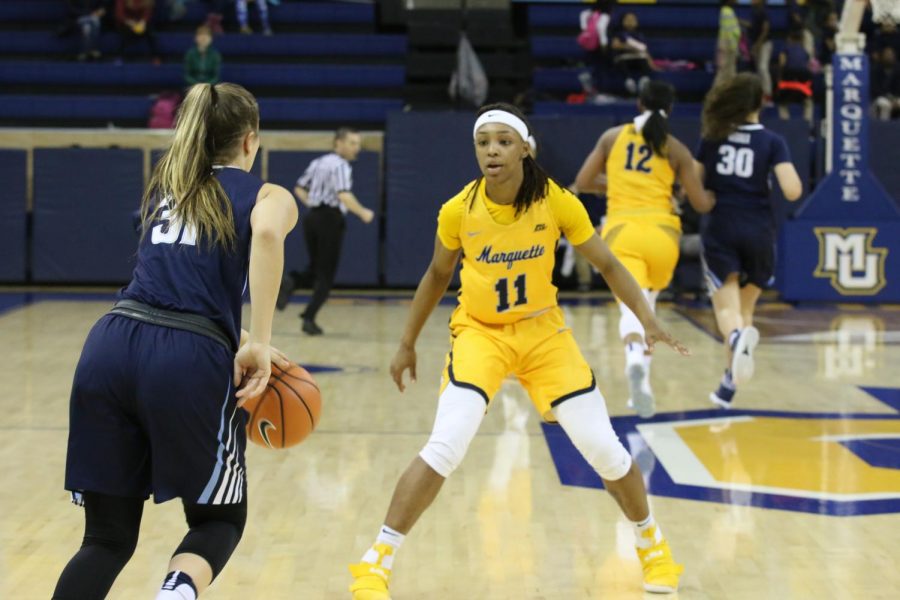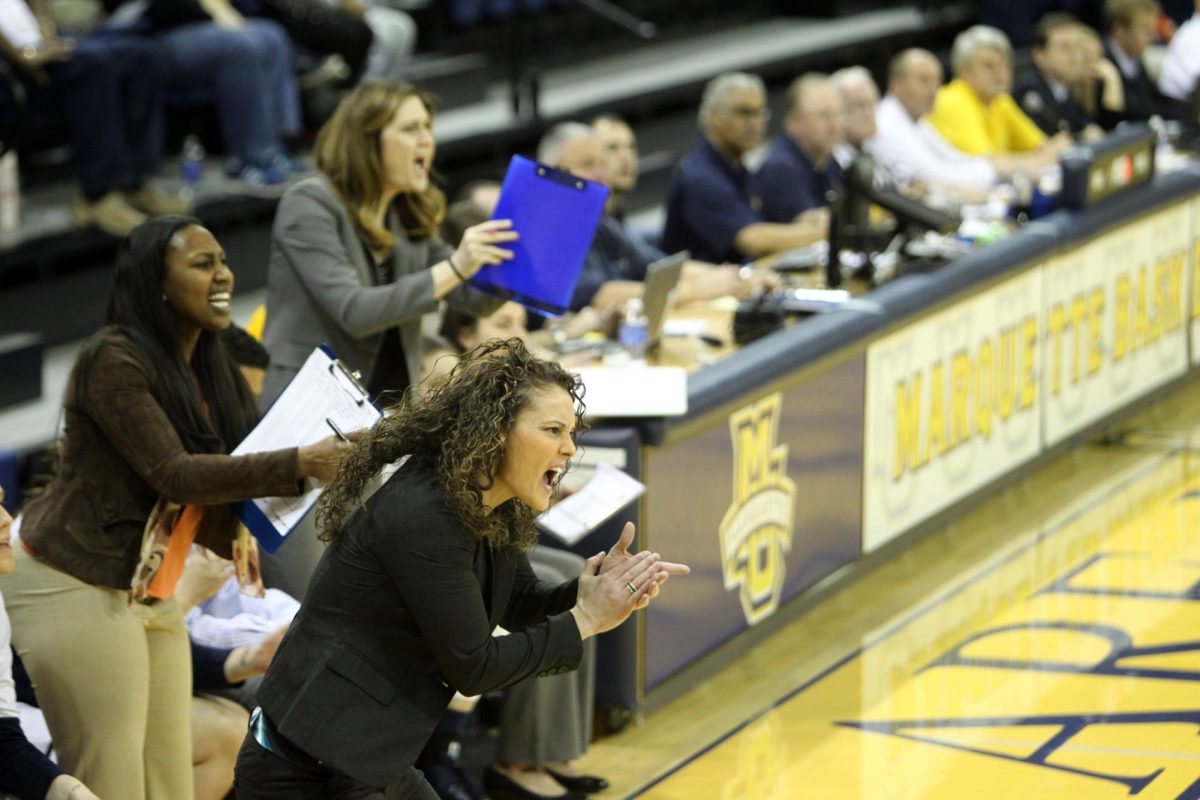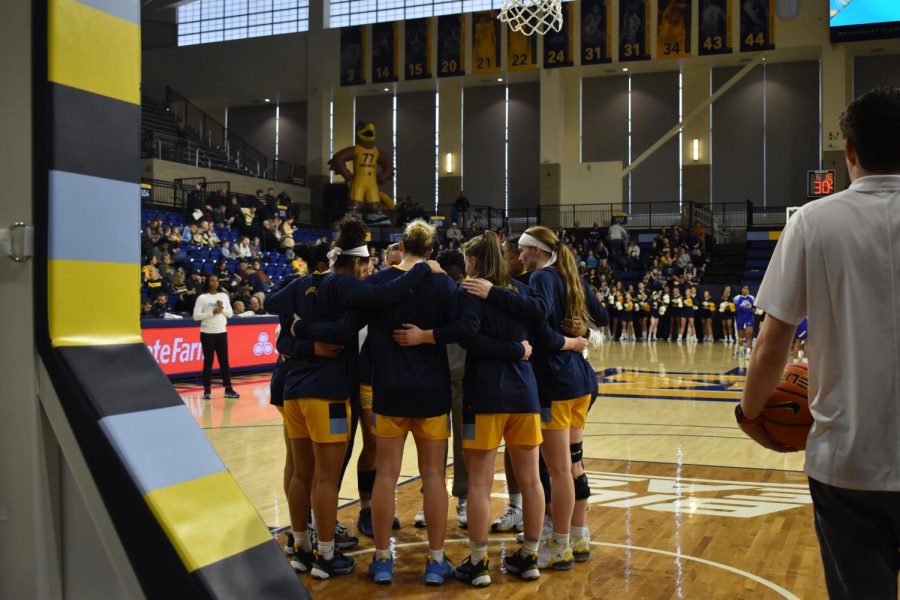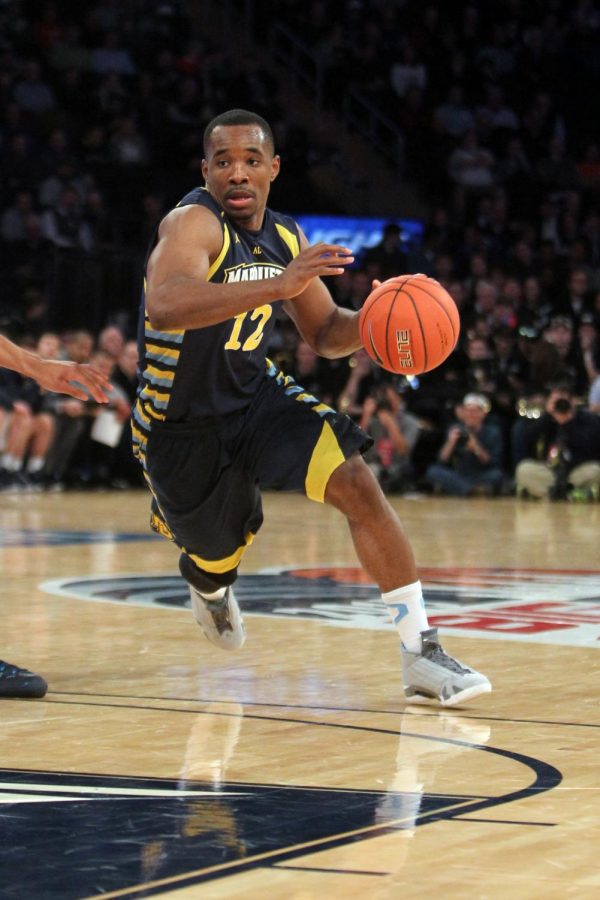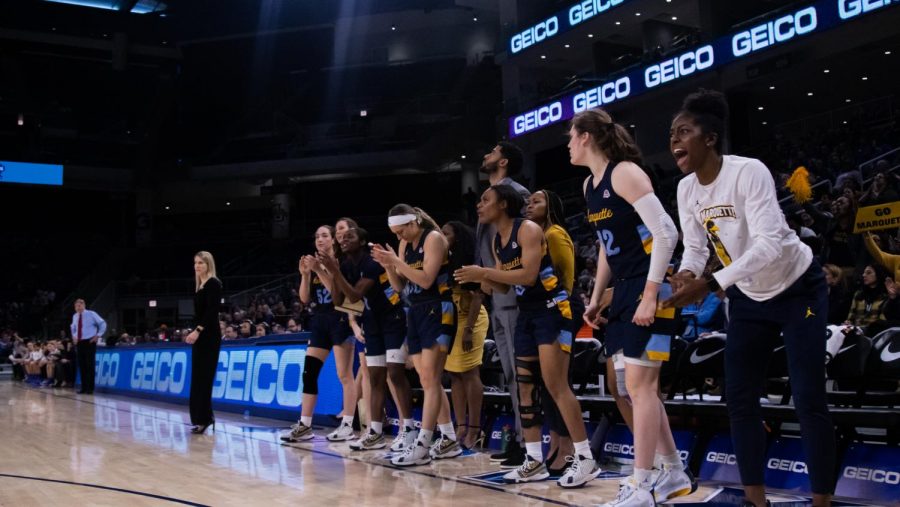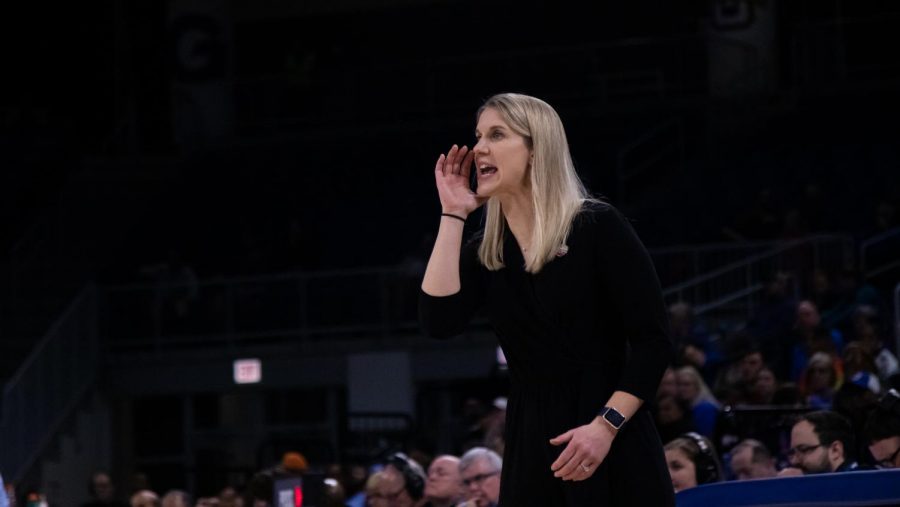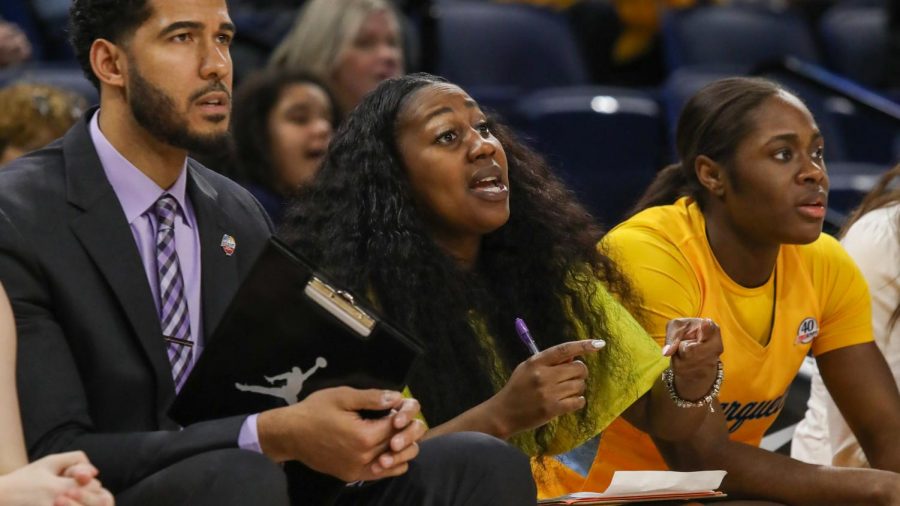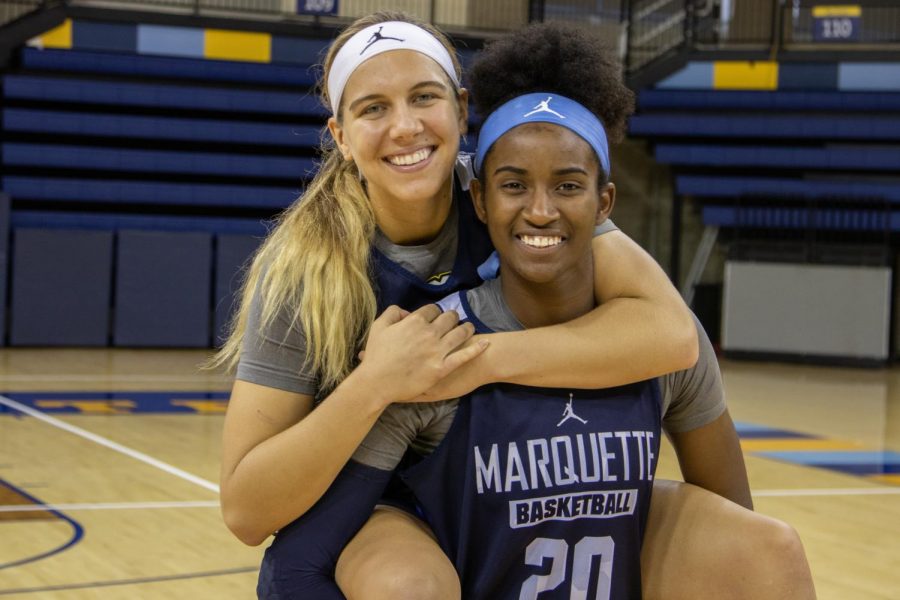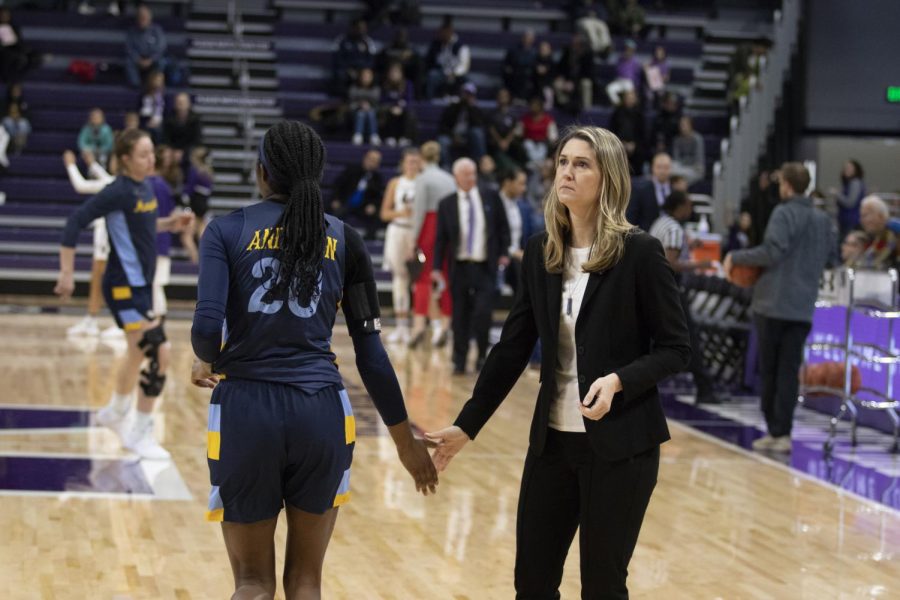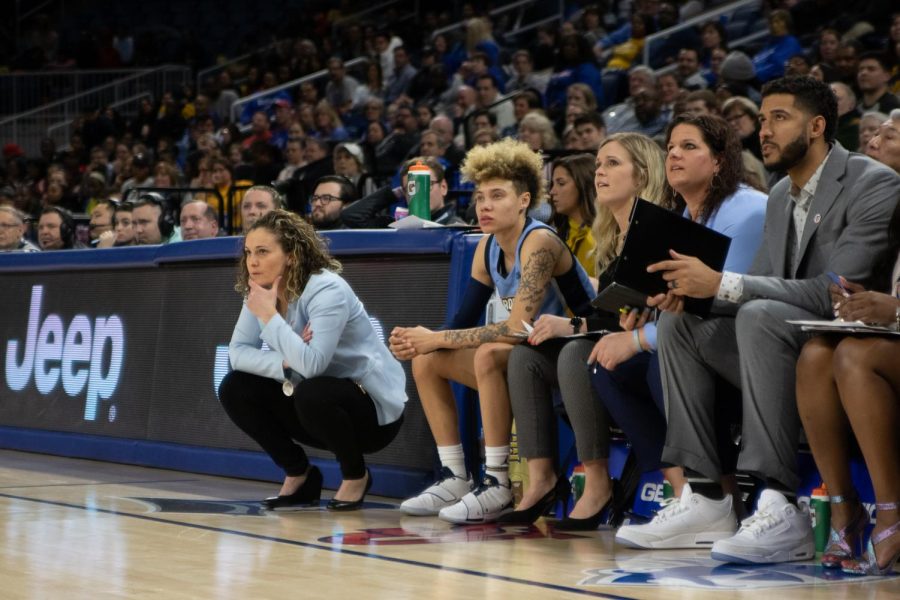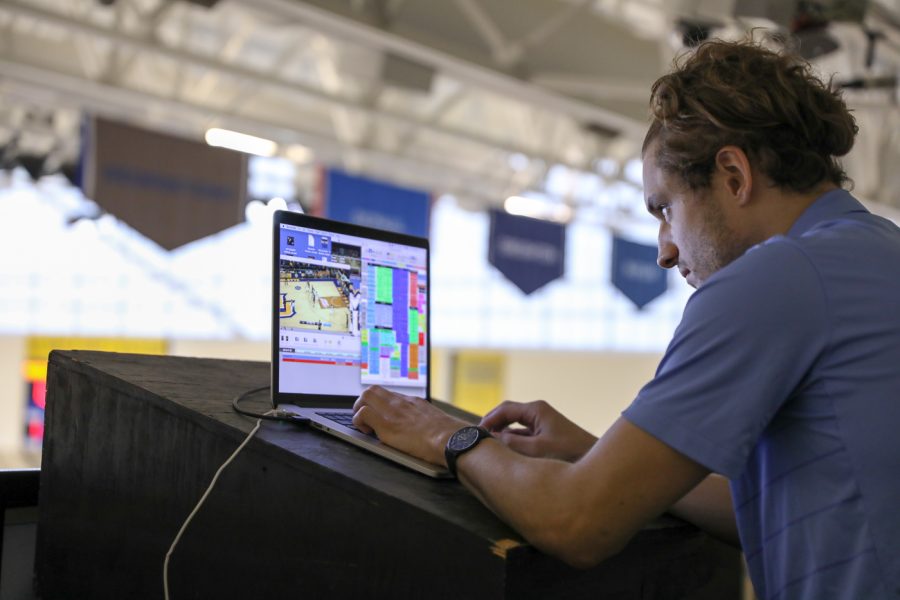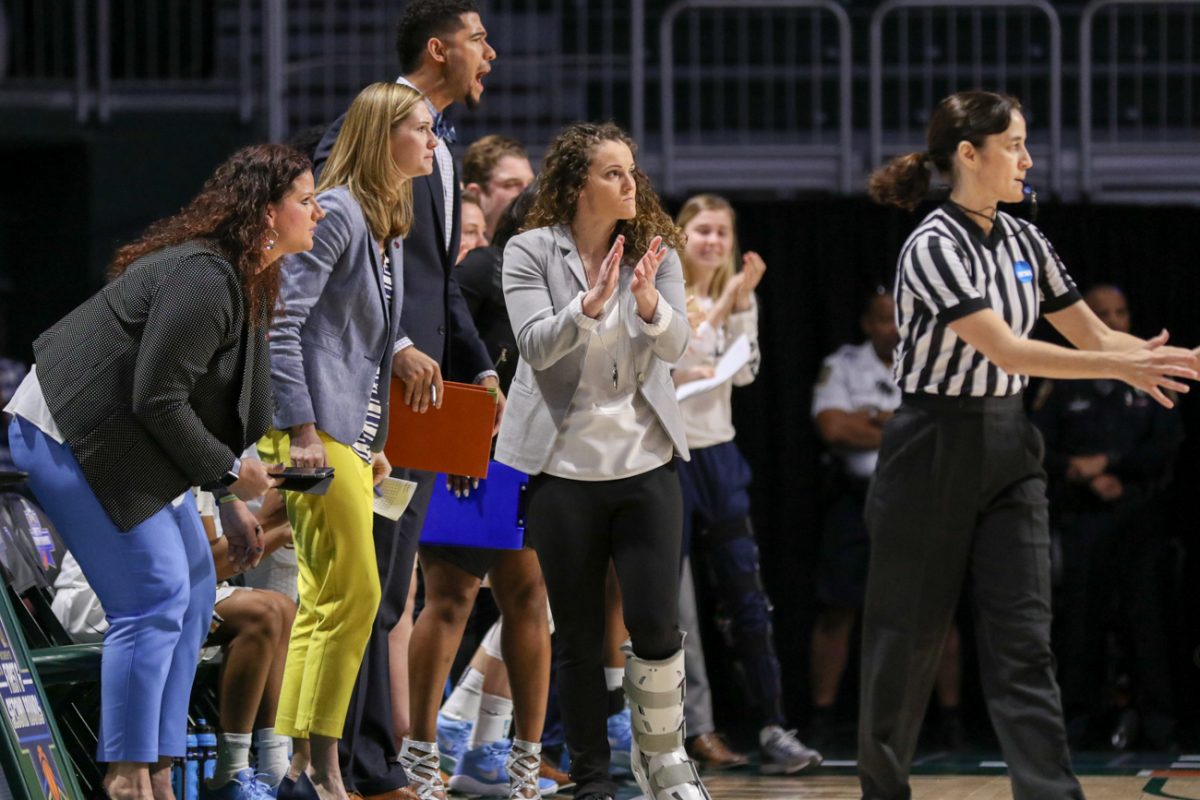During the first eight minutes and 33 seconds of Marquette’s 81-54 victory over Seton Hall last Friday night, the Pirates missed 11 of 12 shots.
Such achievements have been a rarity for most of head coach Carolyn Kieger’s three-plus years at Marquette, but are starting to become more common. Marquette has held seven of its last eight opponents under 70 points. Last year, the Golden Eagles did that only seven times in 18 conference games.
The field goal percentage stats show improvement too. In three of the last four games, Marquette’s opponent has shot under 40 percent from the floor. That only happened three times all of last season.
“We’re pleased with the growth on the defensive end individually and as a unit,” assistant coach Ginny Boggess said. “I think it’s largely led to their buy-in.”
This doesn’t mean Marquette is now a great defensive team. The Golden Eagles still rank 276th out of 349 teams nationally with 69.7 points allowed per game. These last few weeks have amounted to a modest bump in defensive efficiency. That might be all it is, or it could be the beginning of something more substantial.
Boggess touted communication and awareness as the keys to Marquette’s defense finally matching its rapid-fire offense. “You can’t react defensively to something you don’t see,” Boggess said.
Shooting guard Allazia Blockton, who learned offensive communication early in her career, is now trying to get better at “seeing” the other side of the floor just as well.
“Defense has been something I’ve been highlighting since my time at Marquette,” Blockton said.
One of the most frequent mistakes Blockton used to make is losing sight of the ball when opposing offenses ran off-ball motion. While Marquette’s guards still lapse occasionally in this facet of the game — the team’s 74-73 loss to Creighton several weeks ago is a prime example — there haven’t been nearly as many breakdowns as in Kieger’s first few years.
“My coach always says that 95 percent of the game is played without the ball in your hands and without the ball in the person your guarding’s hands,” Blockton said.
When the team is on defense, a cacophony of voices spread from the Golden Eagle bench. Kieger and her three assistants, Boggess, Vernette Skeete and Scott Merritt, appear to be yelling over each other, but it’s all meticulously planned to communicate different defensive assignments.
Boggess is in charge of calling out the “rail,” or help defense, as well as off-ball action. Skeete calls out “pickup points,” or the spot on the floor where the defender needs to guard the ball. Merritt is responsible for post defense and ball screens.
“Coach Kieger really put a lot of responsibility on us and said, ‘Be the head coach of your area,’” Boggess said. “We’ve taken a lot of ownership in that area.”
On a Facebook Live session several weeks ago, Kieger said that her team “was starting to learn the ‘why’ instead of the ‘what’” when it came to the finer points of her system. The importance of that transition, of understanding that a failure to communicate could lead to a teammate getting picked off by a screen or charged with a fifth foul, took a little bit longer to sink in on defense.
“It’s taken some teaching moments where we’ve said, ‘Hey, if we’d communicated better in this moment, would the outcome have been better?’” Boggess said.
Based on Marquette’s season-best six-game winning streak, the answer to that question is a resounding yes.

